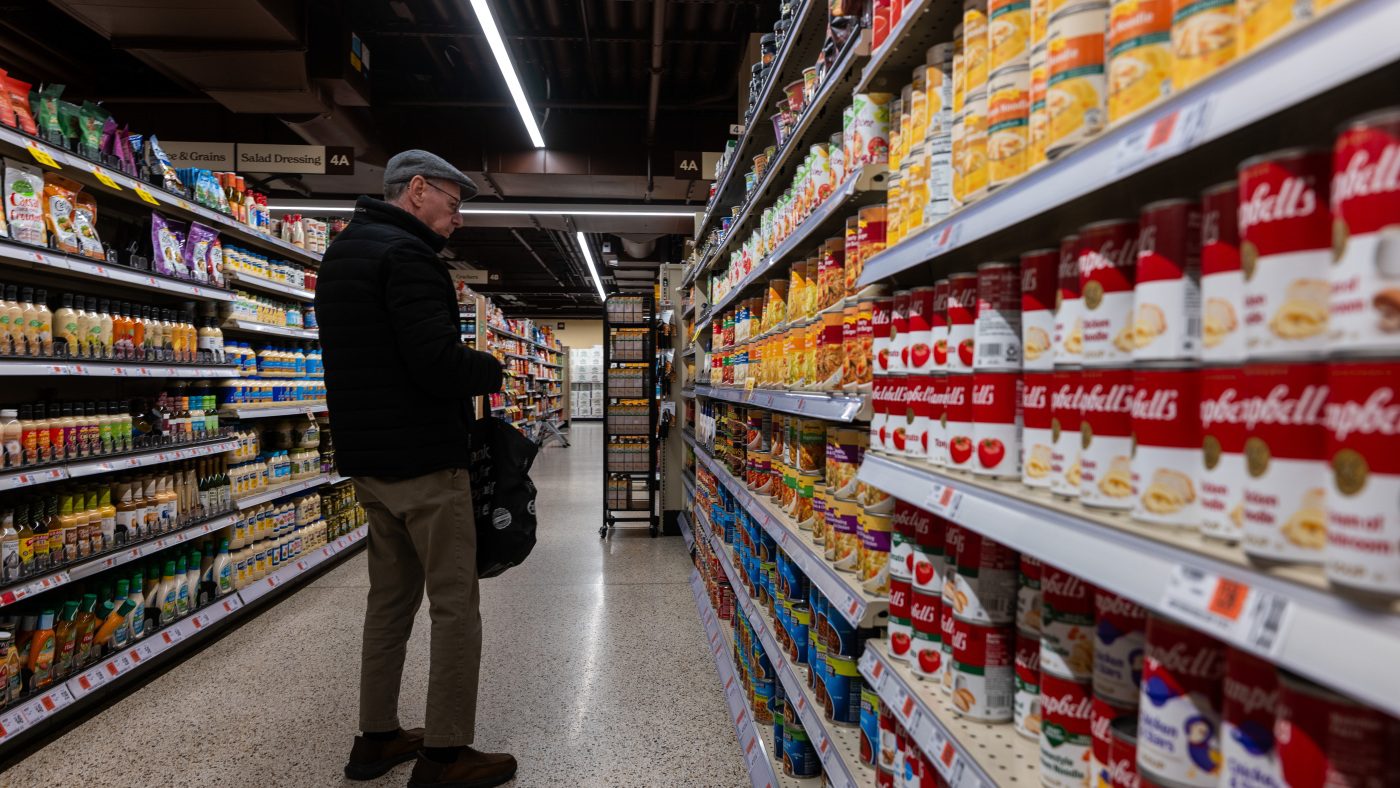
The Impact of Tariffs on Canned Goods Prices: What Consumers Should Know
A Closer Look at Grocery Store Shelves
In a grocery store aisle in New York City, a variety of canned goods—including soup and vegetables—line the shelves. As of February 11, shoppers are noticing a significant potential for price increases on these staple items. This trend stems from recent announcements regarding tariffs on steel and aluminum, essential materials for manufacturing cans.
Tariffs and Their Implications
Recently, President Trump disclosed plans to implement a 25% tariff on all imported steel and aluminum, aimed at bolstering domestic manufacturers by limiting foreign competition. However, experts in the food and beverage industry are cautioning that this hike in prices for imported materials will likely affect the production costs of cans and consequently lead to higher prices for consumers.
Insights from Industry Leaders
Ken Henricks, president of Alter Brewing Co. based in Chicago, expressed concern that escalating can costs could adversely affect the craft beer market, which is already grappling with rising inflation and stiff competition from larger beer companies. He remarked, "We have limited flexibility in our pricing strategy. Raising prices could diminish our sales volumes, especially given current economic challenges."
Continuing Effects of Previous Tariffs
The new tariffs in 2025 follow a pattern established during Trump’s earlier administration, when a 10% tariff on imported aluminum was enacted. While some exemptions were retained during the Biden administration, the recent policy changes eliminate these exemptions, setting the stage for a substantial price increase in aluminum products beginning March 12.
Supply Challenges and Price Increases
The current inflationary environment has put additional strain on consumers, with overall consumer prices, including groceries, continuing to rise. Steel and aluminum serve critical roles in the food and beverage sector, especially for can manufacturing. The U.S. produces around 135 billion metal cans annually, yet a significant portion of the steel used in can production comes from international sources; as much as 70% for tin mill steel relies on imports.
Domestic Production Limitations
American manufacturers face challenges in ramping up domestic production of steel and aluminum. As noted by Tom Madrecki of the Consumer Brands Association, while there is a reliance on U.S. sourcing, the specialized materials needed for certain can types are often imported. This reliance amplifies the potential for more steep price increases if foreign steel becomes cost prohibitive.
Small Businesses and Cost Uncertainty
The uncertainty surrounding can prices is particularly pronounced for small businesses like Heyday Canning Co., which primarily uses steel cans for its products. Co-founder Kat Kavner Woolf shared the challenges her company faces, emphasizing the lack of direct supplier relationships that larger companies might enjoy.
Henricks of Alter Brewing, in an effort to stabilize costs, found it challenging to negotiate favorable pricing with can suppliers amidst the tariff news. Additionally, the Brewers Association has noted that the increased costs for aluminum cans may ripple into higher prices for brewing equipment and raw materials.
Consumers Bear the Burden
As the industry grapples with these changes, consumers are expected to feel the impact at checkout. Robert Budway of the Can Manufacturers Institute highlighted that tariffs will likely result in higher prices for essential canned food items. Moreover, during a recent earnings call, Coca-Cola’s CEO mentioned that greater costs might necessitate changes in packaging, with a potential shift towards more plastic bottles—a worrying trend considering the environmental implications.
Conclusion
As the food and beverage industry navigates these tariff-induced price changes, consumers should stay informed about how these policies will affect their grocery bills. While companies adjust to maintain their margins, shoppers might find themselves facing higher prices for everyday essentials, including canned goods.









